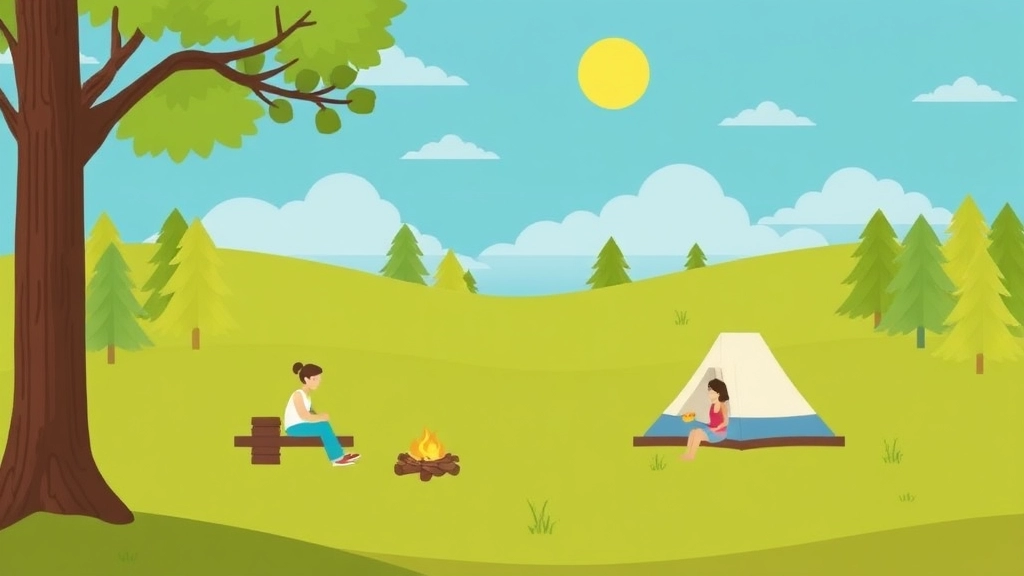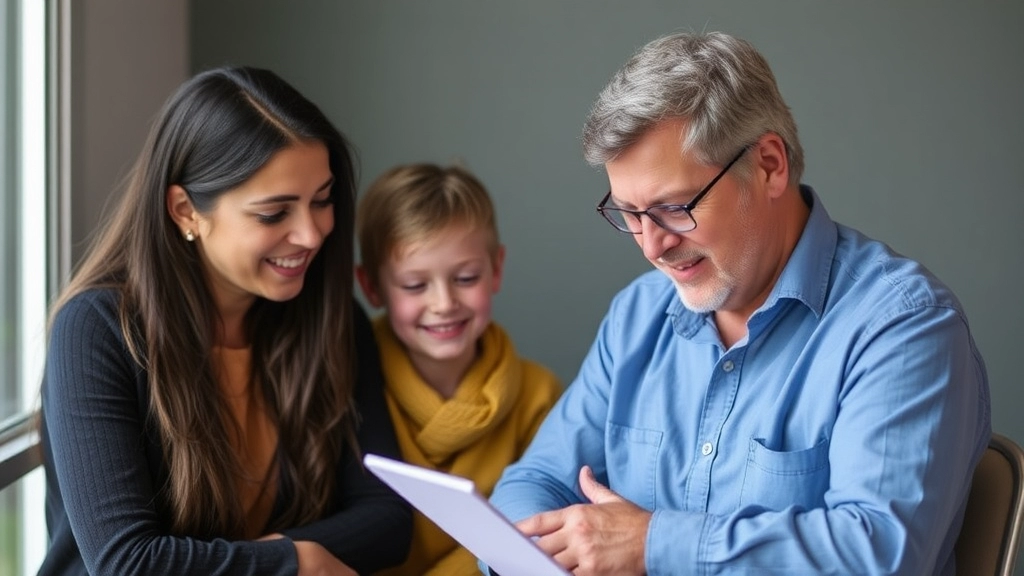Death At Summer Camp
Summer camps are often seen as idyllic getaways for children, filled with adventure and camaraderie. However, lurking beneath the surface are serious concerns that need addressing. This article delves into the sobering topic of “Death At Summer Camp,” examining notable incidents, common causes, and preventive measures. We aim to provide a comprehensive understanding of the risks involved, the legal implications, and the psychological impact on campers and staff. By shedding light on these issues, we hope to foster a safer environment for all.
Understanding Summer Camp Safety
From high-profile case studies to the latest trends and statistics, we explore the multifaceted aspects of summer camp safety. You’ll learn about the crucial role parents and guardians play, the effectiveness of safety protocols, and the importance of emergency response plans. Additionally, we offer resources and support for families affected by tragic incidents.
Join Us in Creating Safer Camps
Join us as we navigate this complex landscape, aiming to transform summer camps into safer havens for our children. Knowledge is power, and being informed can make all the difference.
Overview of Notable Deaths at Summer Camps
What’s the Real Deal with Summer Camps?
Alright, let’s get real. When you think about summer camps, you’re probably picturing kids having a blast, making memories, and maybe learning how to paddle a canoe. But, here’s a question that might keep parents up at night: Are summer camps truly safe?
Now, I’m not here to scare you, but we need to talk about the elephant in the roomânotable deaths at summer camps. It’s a tough topic, but understanding it is crucial.
Why Do We Need to Talk About This?
First off, let’s break it down. Summer camps are meant to be fun and educational, but like any activity, they come with risks. Sometimes, things go wrong, and tragic incidents happen. But what are these incidents, and why should we care?
The Reality of Notable Incidents
Over the years, there have been several high-profile cases that shook the camp community. These aren’t just statistics; they’re real stories involving real people. When you hear about a death at a summer camp, it’s not just a headlineâit’s a wake-up call.
What Are the Common Concerns?
- Accidents: Think drowning, falls, or injuries during activities.
- Health Issues: Undiagnosed conditions or inadequate medical attention.
- Environmental Hazards: Sudden weather changes or wildlife encounters.
Why Do These Tragic Events Matter?
These incidents matter because they highlight the need for better safety measures and awareness. They remind us that while camps are generally safe, there’s always room for improvement.
What’s Next?
As we dive deeper into this topic, we’ll explore:
- Common Causes of Deaths at Summer Camps: Understanding what typically goes wrong.
- Preventive Measures Adopted by Camps: How camps are stepping up their game.
- Legal Implications and Responsibilities: Who’s accountable when things go south.
- Psychological Impact on Campers and Staff: The emotional aftermath.
So, stick with me as we unpack these issues. It’s not just about knowing the facts; it’s about making summer camps safer for everyone. Remember, knowledge is power, and being informed can make all the difference.
For more information on camp safety, check out our guide on summer camp costs and safety tips. Additionally, if you’re interested in specific camps, our list of top summer camps in Milwaukee might be helpful.
Common Causes of Deaths at Summer Camps

Ever worry about the real risks at summer camps?
You’re not alone.
Understanding common causes of deaths at summer camps can help us all do better.
Drowning
It’s a big one.
Kids love water.
But without proper supervision, things can go south quickly.
Key points to consider:
- Ensure lifeguards are always present.
- Swimming lessons should be mandatory.
- Regular headcounts can save lives.
Preventive Measures Adopted by Camps: Ensuring Safety at Every Step
So, you’re worried about the safety of your kid at a summer camp? You’re not alone. Every parent has that gut-wrenching fear of “What if something goes wrong?” Let’s dive into the preventive measures camps are taking to keep those fears at bay.
Comprehensive Staff Training
First things first, staff training is non-negotiable. Camps invest heavily in training their staff to handle emergencies. Here’s what they focus on:
- First Aid and CPR Certification: Every staff member is trained in basic first aid and CPR. This is crucial for immediate response to injuries or health issues.
- Emergency Drills: Regular drills for fire, severe weather, and other emergencies keep everyone on their toes.
- Specialised Training: Lifeguards, hiking guides, and other specialists receive additional training relevant to their roles.
Health Screenings and Medical Readiness
Health is wealth, right? Camps are now more vigilant than ever about health screenings and medical readiness. Here’s what they do:
- Pre-camp Medical Forms: Kids fill out detailed medical forms before camp starts. This helps staff know about allergies, chronic conditions, and other health concerns.
- On-site Medical Staff: Many camps have nurses or doctors on-site to handle medical issues promptly.
- Medication Management: Camps have strict protocols for managing medications, ensuring kids get the right dose at the right time.
Safe Activity Planning
Activities are the heart of summer camps, but they need to be safe. Here’s how camps plan them:
- Risk Assessments: Before any activity, camps perform thorough risk assessments to identify potential hazards.
- Age-appropriate Activities: Camps ensure that activities are suitable for the age and skill levels of the campers.
- Supervised Activities: All activities are closely supervised by trained staff to prevent accidents.
Infrastructure and Equipment Checks
You wouldn’t want your kid playing on a rusty swing set, right? Camps regularly inspect their infrastructure and equipment to ensure safety:
- Regular Inspections: Playgrounds, cabins, and other facilities undergo regular safety inspections.
- Up-to-date Equipment: Camps invest in high-quality, safe equipment for activities like climbing, swimming, and sports.
- Maintenance Protocols: There are strict maintenance protocols to fix any issues promptly.
Clear Communication Channels
Communication is key. Camps have set up robust communication channels to keep everyone informed:
- Emergency Contact Lists: Camps maintain updated emergency contact lists for all campers.
- Parent Updates: Regular updates are sent to parents via emails, texts, or apps.
- Two-way Radios: Staff use two-way radios for quick communication during activities.
Real-life Example: Camp Safety in Action
Picture this: A kid at camp suddenly has an asthma attack. Thanks to the preventive measures in place, the staff quickly administers the inhaler, contacts the on-site nurse, and informs the parents immediately. The situation is handled smoothly because the camp was prepared.
If you’re looking for more insights on camp safety, check out our detailed guide on Cupertino summer camps. For those interested in specific activities, our summer camp water games article provides fun and safe ideas.
Legal Implications and Responsibilities

Ever wondered what happens legally when a tragedy strikes at a summer camp?
It’s a heavy topic, but let’s break it down. Summer camps can be a blast, but they come with their fair share of risks. And when things go wrong, the legal implications can be massive.
Who’s Responsible?
First off, who’s on the hook?
When a child gets hurt or worse, the camp operators are usually the first to face scrutiny. They have a duty of care to keep everyone safe. This means they must take all reasonable steps to prevent accidents. Fail to do that, and they could be looking at a lawsuit.
What Does “Duty of Care” Mean?
Duty of care isn’t just a fancy term. It’s a legal obligation. Camps must:
- Ensure safe facilities: This includes everything from the cabins to the climbing walls.
- Provide adequate supervision: More eyes on the kids mean fewer chances for mishaps.
- Conduct background checks: Hiring staff without proper vetting? Big no-no.
- Train staff properly: Everyone should know first aid and emergency procedures.
Real-Life Consequences
Let’s talk consequences. If a camp is found negligent, they could face:
- Lawsuits: Parents can sue for damages, which can be costly.
- Fines: Regulatory bodies might slap hefty fines.
- Closure: In extreme cases, the camp might be shut down.
What About Waivers?
You might think signing a waiver gets camps off the hook. Not quite. Waivers can limit liability but won’t cover gross negligence. If a camp fails to fix a known hazard, that waiver won’t save them.
Insurance to the Rescue?
Most camps have liability insurance, but even that has limits. Policies often have caps, and some incidents might not be covered. Always read the fine print.
Parents, Know Your Rights
As a parent, you have rights too. If something goes wrong, you can:
- Request an investigation: Demand a thorough look into the incident.
- Seek legal advice: A solicitor can guide you on the next steps.
- Join support groups: Connect with other families who’ve been through similar experiences.
Psychological Impact on Campers and Staff
What Happens to Our Minds When Tragedy Strikes at Summer Camps?
Let’s face it: the idea of kids going off to summer camp is meant to be a joyful one. But what happens when things take a dark turn? When a tragic incident occurs, the psychological impact on both campers and staff can be profound and long-lasting.
The Emotional Rollercoaster
When a death occurs at a summer camp, the immediate emotional responses are shock, disbelief, and grief. These feelings can be overwhelming for both campers and staff, and they often don’t know how to process them.
Imagine this: You’re a camp counsellor, and suddenly you’re faced with a situation where a camper has tragically died. How do you cope? How do you help the other children cope? It’s a heavy burden to bear.
Common Psychological Reactions
Here are some common reactions that campers and staff might experience after such an incident:
- Shock and Denial: The first reaction is often disbelief. “This can’t be happening,” is a common thought.
- Anger and Guilt: People may feel anger towards the situation, or guilt wondering if they could have done something to prevent it.
- Fear and Anxiety: The sense of safety is shattered, leading to heightened anxiety and fear about the future.
- Depression and Withdrawal: Some may retreat into themselves, feeling sadness and a lack of interest in activities they once enjoyed.
Real Stories, Real Impact
Take the case of a camp in the UK where a drowning incident occurred. The staff were not only devastated but also faced immense guilt. The other campers were scared to go near the water again. The camp brought in psychologists to help everyone process the trauma, but the emotional scars remained.
Coping Mechanisms
So, how do we deal with this? Here are some strategies that can help:
- Counselling Services: Providing immediate and ongoing psychological support is crucial. Having trained counsellors on-site can make a big difference.
- Open Communication: Encourage open dialogue about the incident. Let campers and staff express their feelings and fears.
- Group Activities: Engage in group activities that foster a sense of community and support. It helps in rebuilding trust and normalcy.
- Education and Training: Equip staff with the knowledge to handle such incidents emotionally and practically.
The Long-Term Effects
The long-term psychological impact can be significant. Some may develop Post-Traumatic Stress Disorder (PTSD), while others might struggle with ongoing anxiety and depression. It’s essential to monitor the mental health of everyone involved over time.
For more insights on how camps can be a positive experience, check out our article on the top benefits of church summer camps. Additionally, learn about the importance of summer camp counselor duties and responsibilities to better prepare for any situation.
Case Studies of High-Profile Incidents

Ever wonder what really happens when things go wrong at summer camps?
Let’s dive into some high-profile incidents that have shaken the summer camp world.
These aren’t just stories; they’re lessons.
Incident 1: The Tragic Drowning
One of the most heart-wrenching cases involved a young camper who drowned during a lake swim.
What went wrong?
- Lack of supervision: Only one lifeguard for a large group.
- No life jackets: Campers were allowed to swim without them.
- Poor emergency response: It took too long to notice and respond.
Lessons Learned:
- Always have multiple lifeguards.
- Make life jackets mandatory.
- Ensure quick and efficient emergency protocols.
Incident 2: Severe Allergic Reaction
A camper with a known peanut allergy suffered a fatal reaction after consuming a snack.
What went wrong?
- Poor communication: Staff were unaware of the camper’s allergy.
- Lack of training: Staff didn’t know how to use an EpiPen.
- Inadequate medical supplies: The camp had no EpiPens on hand.
Lessons Learned:
- Keep detailed records of campers’ medical conditions.
- Train staff in handling allergic reactions.
- Stock essential medical supplies.
Incident 3: Heatstroke Horror
A camper succumbed to heatstroke during an outdoor activity on an extremely hot day.
What went wrong?
- Ignoring weather warnings: Activities weren’t adjusted for extreme heat.
- Insufficient hydration: Campers weren’t encouraged to drink enough water.
- Delayed medical attention: Symptoms of heatstroke were not recognised in time.
Lessons Learned:
- Monitor weather conditions closely.
- Ensure campers stay hydrated.
- Train staff to recognise and treat heatstroke symptoms.
Incident 4: The Lost Camper
A young camper got lost during a hiking trip and was found days later, tragically deceased.
What went wrong?
- Inadequate supervision: The buddy system was not enforced.
- Lack of communication devices: No way to contact help quickly.
- Poor planning: The route was not well-mapped or understood.
Lessons Learned:
- Enforce the buddy system.
- Equip groups with communication devices.
- Plan and understand routes thoroughly.
These incidents are more than just stories.
They are wake-up calls.
They remind us of the importance of safety protocols and preparedness.
By learning from these cases, we can prevent future tragedies and ensure a safer environment for all campers.
Got any thoughts or questions about these incidents?
Let’s chat.
It’s crucial to keep the conversation going, so we can all learn and improve.
Safety Protocols and Emergency Response Plans
Safety protocols and emergency response plansâthese are the backbone of any well-run summer camp. Let’s face it, parents send their kids to camp with the expectation that they’ll come back with nothing more than sunburns and great stories, not injuries or worse. So, how do camps ensure that? Let’s break it down.
Why Safety Protocols Matter
First off, why are safety protocols so crucial? Well, imagine sending your child off to a place where they’re going to be swimming, hiking, and possibly even rock climbing. These activities are fun but come with risks. The keyword here is preparedness. Camps need to be ready for anything, from minor scrapes to major emergencies.
Key Components of Safety Protocols
Now, what do these safety protocols look like in practice? Here are some of the must-haves:
- Training and Certification: All staff should be trained in first aid and CPR. Lifeguards should be certified. You don’t want someone Googling “how to perform CPR” during an emergency.
- Regular Drills: Fire drills, evacuation drills, and even “lost camper” drills should be routine. Practice makes perfect.
- Clear Communication Channels: Everyone, from the camp director to the youngest camper, should know how to get help quickly. Walkie-talkies, mobile phones, and even old-school whistles can be lifesavers.
- Medical Supplies: A well-stocked first aid kit is non-negotiable. It should include everything from bandages to EpiPens.
Emergency Response Plans
Alright, so what happens when things go south? That’s where emergency response plans come in. These plans are like the playbooks for handling crises. Here’s what they typically cover:
- Immediate Action Steps: What should be done in the first few minutes of an emergency? This could be anything from administering first aid to calling emergency services.
- Roles and Responsibilities: Who does what? The camp nurse handles medical emergencies, the camp director manages communication with parents, and so on.
- Evacuation Routes: Clear paths for getting everyone to safety, whether it’s out of a burning building or away from a dangerous animal.
- Parent Communication: How and when parents will be informed. Trust me, you don’t want parents finding out about an incident from social media.
Real-Life Examples
Let’s get real for a second. Imagine you’re a camp counsellor and a camper suddenly has an allergic reaction. Without a solid emergency response plan, panic sets in. But with a plan, you know exactly where the EpiPen is, how to use it, and who to call next. The difference could be life-saving.
Making It Personal
I remember visiting a camp where they had a “safety wall”âa giant board with all the emergency procedures, contact numbers, and evacuation maps. It was like a security blanket for everyone there. The camp director told me that ever since they implemented these protocols, not only have incidents decreased, but parents feel more at ease sending their kids there.
Role of Parents and Guardians in Ensuring Safety

Worried about your child’s safety at summer camp?
You’re not alone.
Many parents share the same concerns.
So, what can you do to ensure your child’s safety?
Communication
Before camp starts, have a thorough chat with the camp staff. Ask them about their safety protocols and emergency response plans.
Here’s a checklist of questions you might want to ask:
- What’s the staff-to-camper ratio?
- Are the staff trained in first aid and CPR?
- What’s the plan for medical emergencies?
- How do they handle allergies and special dietary needs?
Visit the Camp
If possible, take a tour of the camp. Look at the facilities and meet the staff. This gives you a real sense of the environment where your child will be spending their time.
Pack Smart
Make sure your child has all the necessary gear. This includes:
- Proper clothing for different weather conditions
- A well-stocked first aid kit
- Any medications they might need
Teach Your Child
Equip your child with basic safety knowledge. Teach them:
- How to swim if the camp has a pool or lake
- The importance of staying hydrated
- How to recognize and avoid potential hazards
Stay Connected
Ensure there’s a way for your child to reach you in case of emergencies. Many camps allow kids to bring mobile phones or have scheduled times for calls home.
Trust Your Gut
If something doesn’t feel right, it probably isn’t. Trust your instincts when choosing a camp.
Stories from the Field
I remember a friend who was hesitant about sending her daughter to camp. She did her homework, asked all the right questions, and even visited the camp. Her daughter had an amazing time and came back with lifelong friends and memories.
Final Thoughts
Ensuring your child’s safety at summer camp is a shared responsibility. By taking these steps, you can have peace of mind knowing you’ve done everything you can to keep them safe.
Remember, communication and preparation are key.
Got any other tips or stories? Share them with us!
Stay safe and happy camping!
Trends and Statistics in Summer Camp Fatalities
When we think about sending our kids to summer camp, the last thing we want to worry about is their safety, right? But let’s face it, accidents happen. So, what are the real trends and statistics in summer camp fatalities? And more importantly, what do these numbers mean for us as parents, guardians, and camp staff?
The Numbers You Need to Know
First off, let’s get straight to the point. How common are fatalities at summer camps? According to recent data, the incidence of deaths at summer camps is relatively low, but even one death is too many. Here’s a breakdown of some key statistics:
- Drowning: The leading cause of death at summer camps, accounting for nearly 50% of fatalities.
- Medical Emergencies: About 20% of deaths are due to medical issues like asthma attacks or undiagnosed health conditions.
- Accidents: These include falls, vehicular accidents, and other unintentional injuries, making up around 15% of fatalities.
- Violence: Although rare, incidents of violence have also resulted in fatalities, constituting about 5% of the total.
What’s Behind the Numbers?
So, why do these fatalities happen? It’s not just about bad luck. There are usually underlying factors like:
- Lack of Supervision: Inadequate staff-to-camper ratios can lead to missed warning signs.
- Poor Training: Staff not properly trained in emergency response can make a bad situation worse.
- Inadequate Facilities: Outdated or poorly maintained equipment can be a hazard.
- Health Screening: Incomplete medical histories can leave camps unprepared for emergencies.
Real Stories, Real Lessons
Let’s make this real with a couple of examples. Remember the tragic drowning incident at a popular camp in 2018? The investigation revealed that the lifeguard on duty was distracted, and the camp had not enforced a buddy system for swimmers. This heartbreaking event led to stricter supervision policies and mandatory lifeguard certifications.
Or consider the case of a camper who suffered a fatal asthma attack. The camp had no detailed medical records for the child, and staff were unaware of his condition. This incident spurred many camps to adopt more rigorous health screening processes.
What Do These Trends Mean for Us?
Understanding these trends isn’t just about knowing the numbers; it’s about taking action. Here are some steps we can all take:
- For Parents:
- Do Your Homework: Research the camp’s safety protocols and staff qualifications.
- Communicate: Share detailed medical histories and emergency contacts with camp staff.
- For Camps:
- Invest in Training: Ensure all staff are trained in CPR, first aid, and emergency response.
- Update Facilities: Regularly inspect and maintain all equipment and facilities.
- Enforce Policies: Implement and strictly adhere to safety policies, like the buddy system for swimming.
Resources and Support for Affected Families
Worried About Your Child’s Safety at Summer Camp?
We get it.
The thought of sending your kid off to camp can be nerve-wracking, especially with the stories you hear.
But don’t worry.
There are resources and support systems out there for families who have been affected by tragic incidents at summer camps.
Immediate Support
First things first: get immediate support.
- Counselling Services: Many camps have partnerships with local counsellors who can provide immediate emotional support.
- Crisis Hotlines: There are hotlines available 24/7 for immediate help.
- Local Support Groups: Find a community of people who have been through similar experiences.
Long-Term Support
After the initial shock, you’ll need long-term support.
- Therapy: Ongoing therapy can help both parents and children process their emotions.
- Legal Advice: Sometimes, you need legal advice to understand your rights and responsibilities.
- Financial Assistance: Some organisations offer financial help for families dealing with the aftermath of a tragedy.
Organisations to Know
Here are some key organisations that can provide the support you need:
- The Compassionate Friends: Offers support for families after the death of a child.
- The American Camp Association (ACA): Provides resources and guidelines to improve camp safety.
- National Alliance for Grieving Children: Offers resources for children dealing with loss.
Real Stories, Real Support
Let’s keep it real.
Jane, a mother of two, lost her son at a summer camp due to a freak accident. She found solace in a local support group and regular therapy sessions.
She says, âThe support I received was like a lifeline. I don’t know how I would have coped without it.â
Practical Tips
Here are some practical tips to help you navigate this tough time:
- Stay Connected: Keep in touch with other parents and camp staff.
- Document Everything: Keep a record of all communications and incidents.
- Ask Questions: Don’t be afraid to ask for details about safety protocols and emergency plans.
Final Thoughts
The key is to know your resources.
Being prepared can make a world of difference.
Whether it’s immediate support, long-term care, or just knowing who to call, having these resources at your fingertips can provide some peace of mind.
Remember, you’re not alone. For more information on how to ensure your child’s safety, check out our Essential Guide for Summer Camp Leaders. Also, if you’re dealing with financial concerns, learn how to secure summer camp financial aid easily.
FAQs on Deaths at Summer Camps
What are the common causes of deaths at summer camps?
Common causes include drowning, severe allergic reactions, heatstroke,
References
-
CDC – Drowning Facts
-
American Bar Association – Camps and the Law
-
Safe Kids Worldwide – Camp Safety Tips

